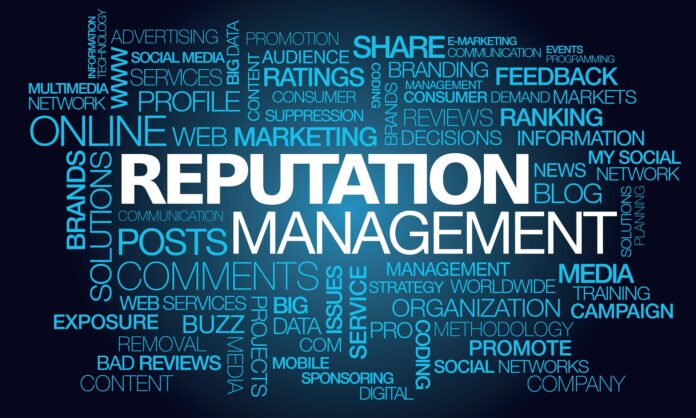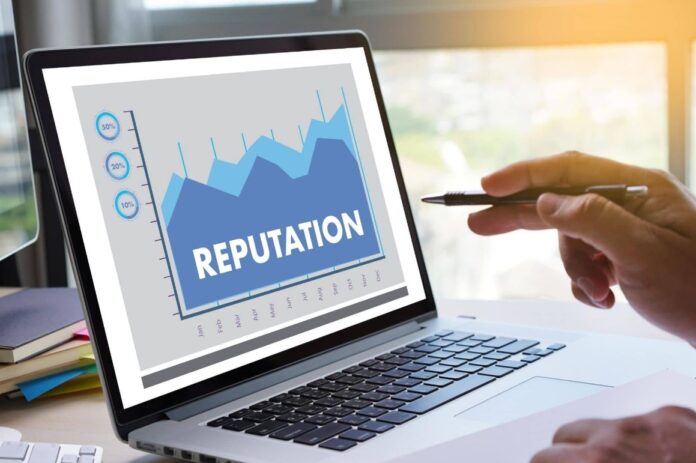When using online services, your digital footprint and personal reputation become vulnerable. Individuals and businesses must understand their rights and safeguard against potential harm or data misuse.
This post explores legal aspects of reputation management, offering insights on securing online profiles, addressing privacy breaches, and utilizing online reputation services for effective identity management.
Additionally, we’ll look into the importance of online reputation services in managing an online identity. So stick around as we dive deeper into the complexities of managing an online identity.
What Is Reputation Management, And How Can It Help You Online

Reputation management is crucial today. It involves monitoring and controlling online mentions, including negative search results. Your online reputation can greatly impact your personal and professional life, so managing it is vital.
Strategies for reputation management include social media monitoring, SEO, content creation, and addressing negative search results.
By managing your online reputation, you can ensure a positive image that aligns with your desired branding, leading to job opportunities, attracting clients, and overall success in your personal and professional life. Take control of your online presence to shape your future.
Understanding Your Rights to Privacy & Free Speech
As citizens of a democratic society, we have certain basic rights, including privacy and free speech. However, many people are unsure about the specifics of these rights and how to protect them.
Understanding our rights is crucial, especially in the digital age. Staying informed and vigilant allows us to enjoy the freedom of expression and protect our privacy in an ever-changing world.
Navigating the Challenges of Anonymity Online
In the digital age, anonymity online presents a unique set of challenges and opportunities for reputation management.
While it offers a shield for personal privacy and freedom of expression, it also opens doors to potential misuse, such as defamation or harassment under the veil of anonymity. The legal landscape around anonymous online activity is complex, balancing the right to privacy with the need for accountability.
For individuals and businesses, understanding the implications of online anonymity is crucial.
Anonymity can empower free speech, especially in situations where revealing one’s identity could lead to repercussions. However, it can also be misused to spread false information or engage in malicious activities without immediate consequences.
The key is to approach online anonymity with a balanced perspective. Individuals should exercise their right to anonymity responsibly, understanding that their online actions can have real-world impacts.
Businesses, on the other hand, need to be vigilant about how anonymous comments or reviews might affect their reputation and be prepared to take appropriate legal action when necessary.
Defamation of Character and Libel Laws

Defamation and libel are often misunderstood legal terms with serious implications for individuals and businesses. If you’ve been accused of defamation or your reputation has been damaged, it’s crucial to understand your rights.
Defamation can take various forms, including false spoken or written statements that harm one’s reputation.
Libel specifically refers to written defamation. If someone makes untrue statements that harm your reputation, you may have grounds for legal action. Understanding these laws can help protect yourself, your reputation, and your business.
Copyright Laws and Intellectual Property Rights
The debate over copyright laws and intellectual property rights has become complex. Online piracy and the ease of sharing digital content pose challenges to protecting work and fostering innovation.
Copyright laws enable ownership of original creations, while intellectual property rights safeguard intangible assets.
Balancing protection and exchanging ideas remains challenging in the face of fair use, infringement, and advancing technologies.
The Role Of GDPR In Protecting Your Data
Data is a valuable asset for individuals and organizations. We expect our personal information to be safeguarded online. However, data breaches and cyberattacks have increased, highlighting the need for data protection.
The General Data Protection Regulation (GDPR) addresses this. Enacted in 2018 by the European Union, the GDPR gives individuals in the EU more control over their data and imposes accountability on organizations.
The regulation includes hefty fines for breaches, making it crucial to understand our rights and protect our data.
Strategies For Effective Reputation Management & Negotiating Adverse Reviews

Reputation management is crucial for businesses. With social media and online reviews, it’s more important than ever to manage your brand.
Adverse reviews can damage your reputation, but they can also be an opportunity to improve. Respond promptly to acknowledge concerns and offer solutions.
Regularly monitor your online reputation and use tools to track mentions of your company. Implement these strategies to maintain a positive business reputation.
The Impact of Social Media on Reputation Management
These platforms have the power to rapidly amplify information, making them a critical component of any reputation management strategy.
The immediacy and widespread reach of social media mean that both positive and negative information can spread quickly, significantly impacting an individual’s or a business’s public image.
For effective reputation management in the social media era, it is essential to not only monitor what is being said about you or your business but also to actively engage with your audience.
This includes regularly updating your profiles, responding to comments and reviews, and sharing content that reflects your values and professional achievements.
Proactive engagement helps in shaping the narrative around your brand, allowing you to highlight positive aspects and quickly address any negative mentions.
However, social media also presents unique challenges. Misinformation can spread rapidly, and negative content can go viral, causing significant damage to a reputation in a short amount of time. In such cases, a well-thought-out crisis management strategy becomes crucial.
By leveraging the power of social media effectively, individuals and businesses can not only protect but also enhance their online reputation.
It requires a strategic approach, combining regular monitoring, engaging content, and swift response mechanisms to manage the dynamic and often unpredictable nature of social media.
Final Thoughts

To effectively manage your online reputation, understand your legal rights and the role of GDPR in protecting your data. Reputation management safeguards against defamation claims and copyright violations.
Develop a strategy for handling adverse reviews in search results: track brand mentions, respond promptly to reviews, create social media accounts reflecting your values, and utilize SEO tools.
It’s crucial to understand your rights and establish processes to maximize the benefits of a healthy online image. Start monitoring your online presence today.







